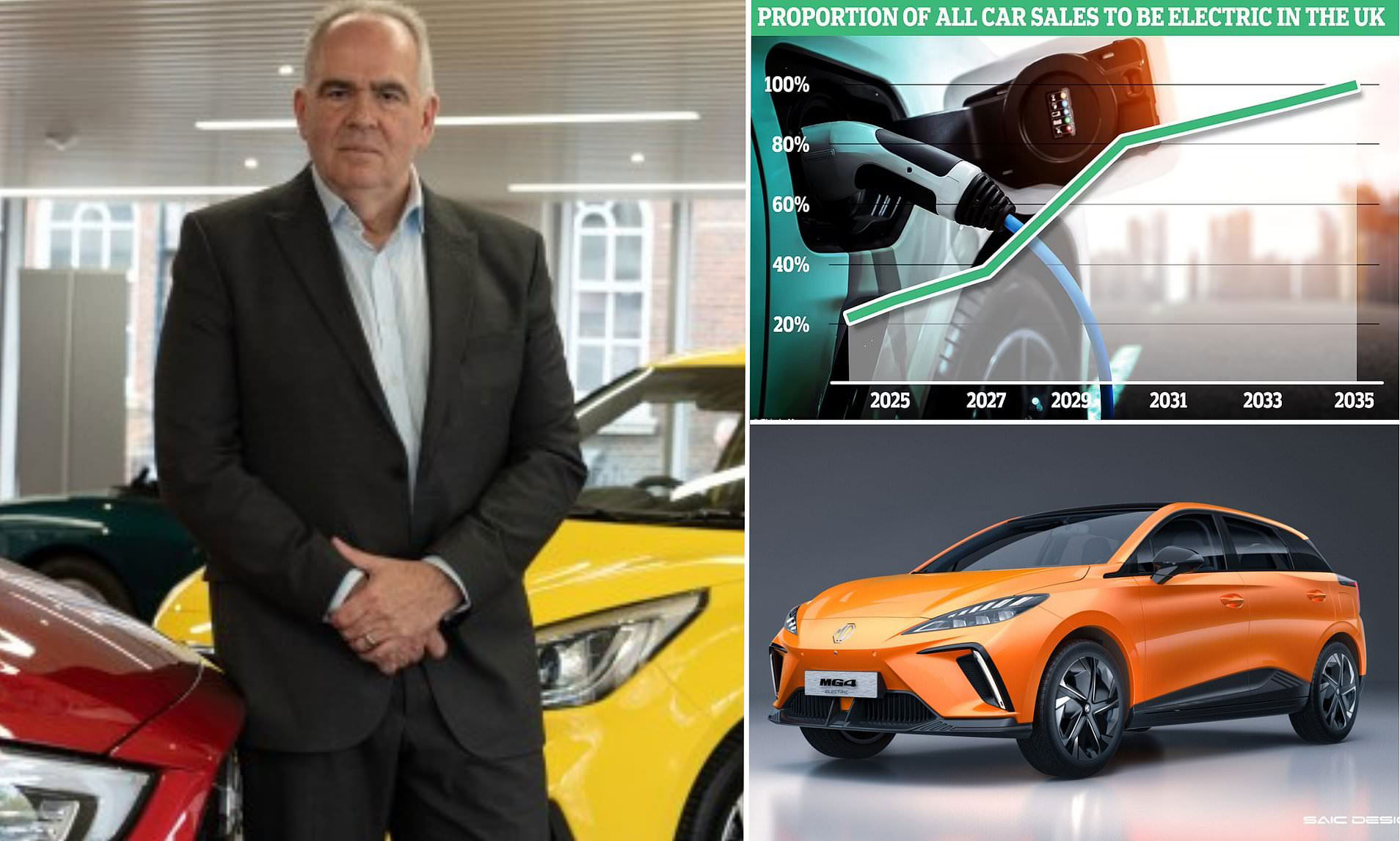Auto Dealerships Push Back On Mandatory EV Sales

Table of Contents
Financial Concerns and Infrastructure Readiness
One of the primary concerns driving dealership resistance to mandatory EV sales is the substantial financial investment required to adapt their operations. Transitioning to a predominantly EV-focused business model demands significant upfront costs and ongoing operational changes. Dealerships face the daunting prospect of upgrading their infrastructure to accommodate electric vehicles, a process that can be both costly and complex.
- High upfront costs for installing EV charging stations: The installation of Level 2 and DC fast chargers requires significant capital investment, especially for larger dealerships needing to handle a volume of EVs. This includes the cost of equipment, installation, and ongoing maintenance.
- Need for specialized technician training for EV maintenance and repair: EVs have different components and require specialized knowledge and tools for repair and maintenance. Training existing technicians and hiring specialized personnel adds to the financial burden.
- Increased inventory costs due to the higher price point of EVs: EVs currently command higher prices than comparable gasoline-powered vehicles, leading to increased inventory holding costs for dealerships. This puts a strain on cash flow and profitability.
- Uncertainty regarding consumer demand in specific geographic areas: The demand for EVs varies significantly across regions. Dealerships in areas with lower consumer interest in EVs face the risk of significant financial losses if forced to meet unrealistic sales quotas.
Consumer Demand and Market Readiness
While the push for mandatory EV sales is driven by environmental concerns, the reality is that consumer demand for EVs is not yet uniformly high enough to support aggressive sales targets. Several factors hinder widespread EV adoption:
- Lower consumer affordability compared to gasoline vehicles: The higher upfront cost of EVs remains a significant barrier for many consumers. Government incentives can help, but they often don't fully offset the price difference.
- Concerns about range and charging time: "Range anxiety" – the fear of running out of battery power – and concerns about charging times remain significant obstacles to EV adoption. Improvements in battery technology are helping, but these anxieties persist.
- Limited availability of public charging stations in certain areas: The lack of widespread charging infrastructure, particularly in rural areas, severely limits the practicality of EV ownership for many potential buyers.
- Lack of consumer awareness about EV benefits and technologies: Many consumers remain unaware of the long-term cost savings, environmental benefits, and technological advancements associated with electric vehicles.
The Role of Government Incentives and Regulations
Governments play a crucial role in fostering the adoption of EVs. While incentives like tax credits and rebates can stimulate demand, overly aggressive mandatory EV sales targets can be counterproductive. A balanced approach is crucial:
- Effectiveness of tax credits and rebates in stimulating EV demand: Government incentives have proven effective in encouraging EV purchases, but their impact varies depending on the level of financial support and the specific design of the programs.
- Potential negative impact of unrealistic sales quotas on dealerships: Imposing unrealistic sales targets without adequate support for dealerships could lead to financial hardship, forcing dealerships to close or reduce their workforce.
- Balancing government incentives with market forces to ensure smooth transition: The transition to EVs requires a careful balance between government intervention and market-driven forces. A gradual and realistic approach is more sustainable in the long run.
- Importance of considering the unique needs of different regions: EV adoption rates vary significantly across geographic areas due to factors like population density, infrastructure availability, and consumer preferences. Government policies should be tailored to accommodate these regional differences.
Dealership Adaptations and Strategies
Despite the challenges, many dealerships are proactively adapting to the changing market landscape. They are investing in strategies to remain competitive and meet the growing demand for EVs:
- Investment in EV charging infrastructure at dealerships: Forward-thinking dealerships are investing in charging stations to offer convenient charging options to customers and demonstrate their commitment to the EV market.
- Staff training programs focused on EV sales and service: Dealerships are recognizing the importance of training their sales and service staff to effectively handle EV sales, maintenance, and repairs.
- Partnerships with EV charging network providers: Collaborating with charging network providers can offer dealerships valuable marketing opportunities and create a seamless experience for EV customers.
- Collaboration with EV manufacturers for marketing and sales support: Working closely with EV manufacturers can provide dealerships with valuable support in marketing, sales, and training.
Conclusion: Navigating the Future of Auto Sales with EVs
The pushback from auto dealerships against mandatory EV sales highlights the significant financial and logistical challenges involved in transitioning to a predominantly electric automotive market. While government intervention is crucial for promoting sustainable transportation, a balanced approach is essential. Overly aggressive mandates risk harming dealerships and hindering the overall transition. A more sustainable strategy would involve a phased approach, combining financial incentives, infrastructure development, and consumer education to create a market ripe for wider EV adoption. Continued discussion and research on the implications of mandatory EV sales, considering the perspectives of both auto dealerships and government regulators, is crucial to finding a path towards a successful and sustainable future for the automotive industry. Let's continue the conversation on how best to navigate the future of auto sales with EVs.

Featured Posts
-
 Trump Seeks Relief On Tariffs And Rare Earths In China Trade Discussions
May 12, 2025
Trump Seeks Relief On Tariffs And Rare Earths In China Trade Discussions
May 12, 2025 -
 Ufc 315 Main Card Results In Depth Analysis Of Muhammad Vs Della Maddalena
May 12, 2025
Ufc 315 Main Card Results In Depth Analysis Of Muhammad Vs Della Maddalena
May 12, 2025 -
 Uruguays Offshore Oil Potential A Realistic Assessment Of Black Gold
May 12, 2025
Uruguays Offshore Oil Potential A Realistic Assessment Of Black Gold
May 12, 2025 -
 Sylvester Stallones Regret Turning Down The 1978 Best Picture Coming Home
May 12, 2025
Sylvester Stallones Regret Turning Down The 1978 Best Picture Coming Home
May 12, 2025 -
 Rory Mc Ilroys 4 Year Old Daughter Sinks Putt At Augusta Watch The Adorable Moment
May 12, 2025
Rory Mc Ilroys 4 Year Old Daughter Sinks Putt At Augusta Watch The Adorable Moment
May 12, 2025
